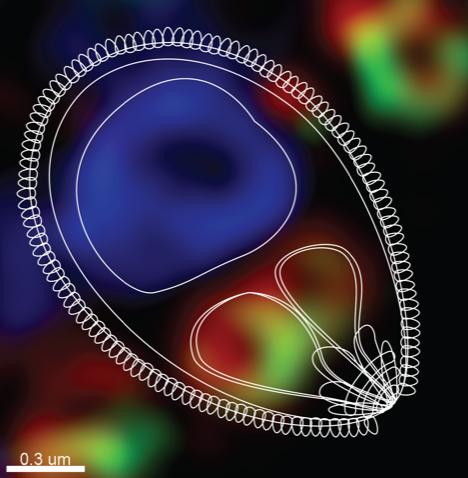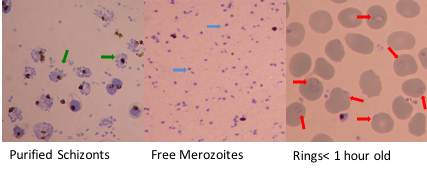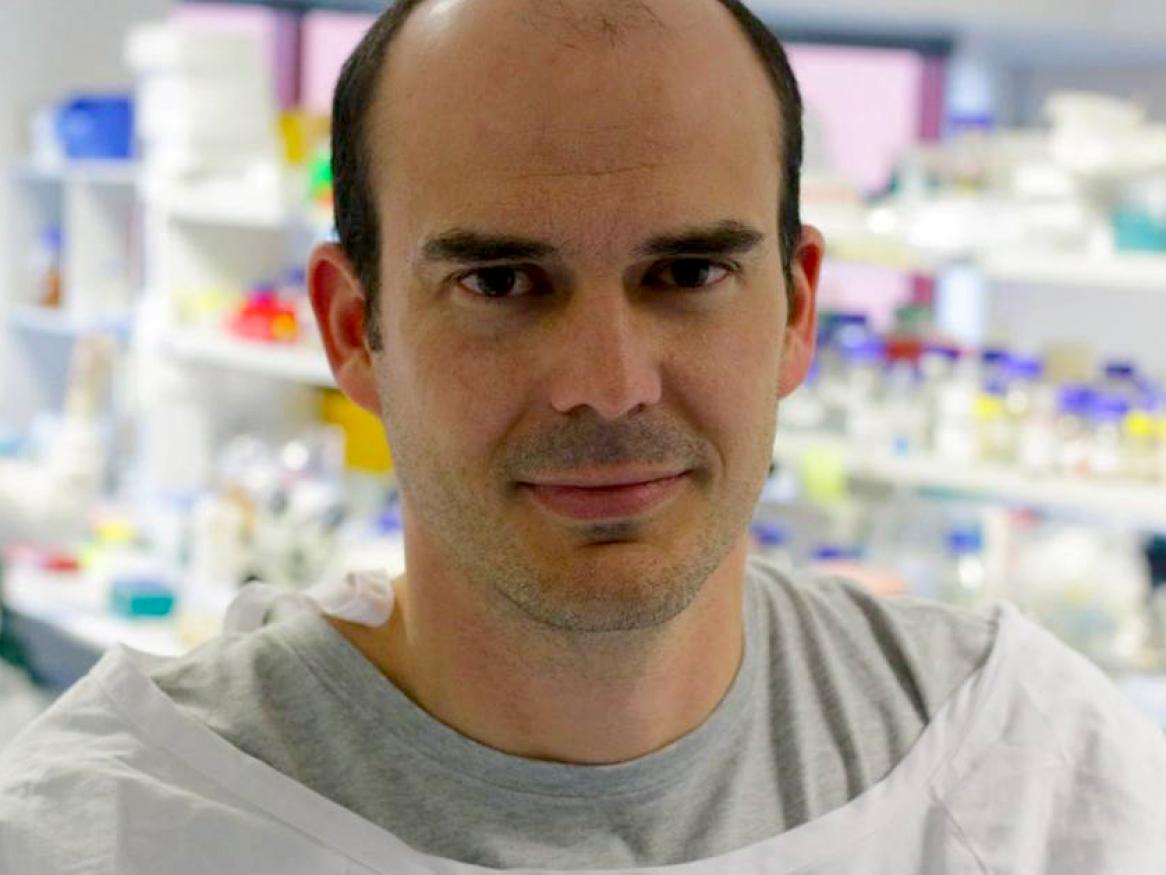Malaria biology

The Malaria Biology Laboratory seeks to identify and characterise novel parasite proteins for their suitability as both Malaria drug and vaccine targets.
We have a major focus on invasion of the human red blood cell by the small invasive merozoite stage of the parasite lifecycle as a therapeutic target.
By developing therapeutics such as drugs and vaccines that inhibit merozoite invasion of the red blood cell, we can instantly disrupt the lifecycle of the parasite in the stage that causes all the symptoms of the disease.

Figure 1
We apply a breakthrough P. falciparum merozoite purification method to study this previously intractable lifecycle stage (Figure 1).
We are also searching for novel drug targets that inhibit growth of P. falciparum and the zoonotic human malaria parasite P. knowlesi throughout the blood stage lifecycle.
Research impact
Half of the world’s population is at risk of infection with mosquito-borne malaria parasites of the genus Plasmodium. These complex eukaryotic parasites that live inside human cells cause widespread sickness and death throughout tropical and sub-tropical regions of the world including countries neighbouring Australia.
A majority of the more than 400,000 malaria related deaths that occur each year are caused by the parasite Plasmodium falciparum. These deaths occur in children under five years old in Africa, Asia and South America.
Unfortunately, resistance has developed to our most effective anti-malarial drugs, resulting in poorer treatment outcomes for clinical cases of this deadly parasite. We also lack an effective vaccine that would reduce the burden of disease and greatly facilitate efforts to eradicate malaria.
The Malaria Biology Laboratory work with medicinal chemists to identify, validate and improve compounds with antimalarial properties, as well as identify their targets, for development as next-generation antimalarials.







